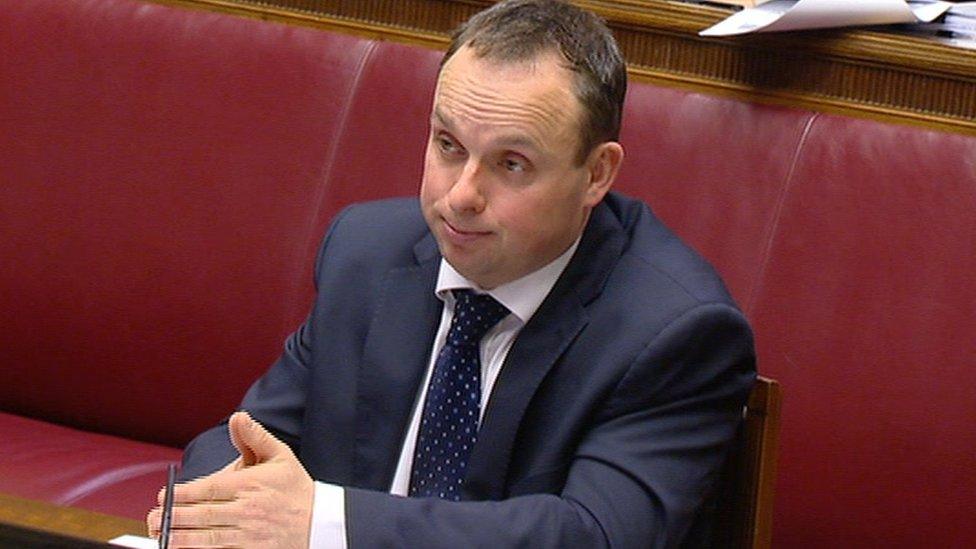Experts 'knew green scheme was flawed'- RHI inquiry
- Published
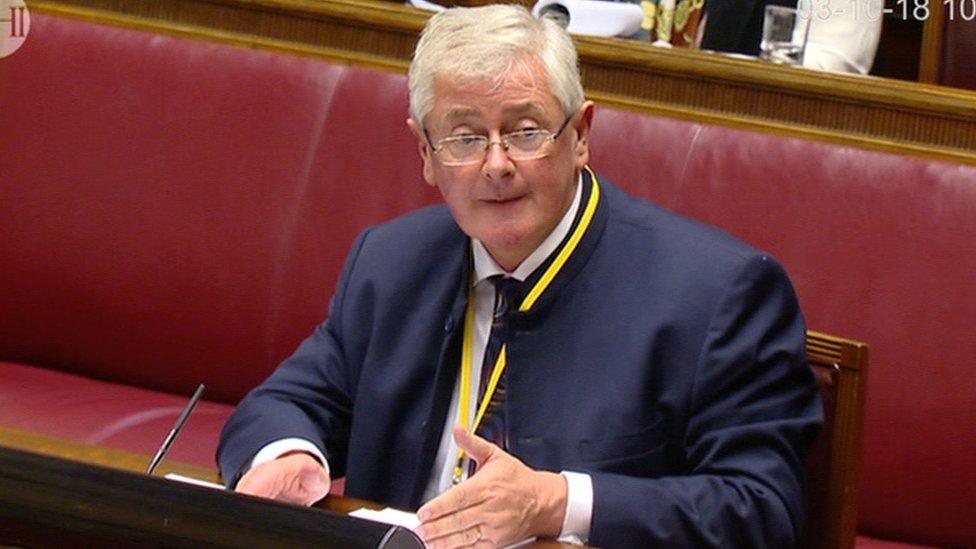
Michael Doran said Action Renewables knew there would be no cost control mechanism to prevent the RHI scheme being exploited for profit
A group that promoted itself as the "leading authority" on renewable heat knew from the outset that NI's green energy scheme was flawed, an inquiry has heard.
Michael Doran runs Action Renewables, which helps businesses move from fossil fuels to renewable energy.
He was appearing at the Renewable Heat Incentive (RHI) inquiry.
The scheme was set up in 2012 to promote eco-friendly heat systems, but huge subsidies led to a £490m bill.
Its failings led to the establishment of a public inquiry in January 2017, which is investigating who holds responsibility for what went wrong with the scheme.
The final cost of the ill-fated scheme will have to be picked up by NI taxpayers.
On Wednesday, Mr Doran, who has been head of Action Renewables since 2009, said his organisation had known from the early days of the RHI scheme that there would be no cost control mechanism to prevent the scheme being exploited for profit.
Action Renewables, which is registered as a charity that promotes efficient use of energy, provided advice to an assembly committee prior to the introduction of the scheme, but did not mention this.
'Put the brakes on'
A similar scheme in Great Britain did have tariffs built in, so that it could not be manipulated.
Mr Doran said the reason it had not raised the issue was because he felt it could have delayed the scheme's introduction by more than a year.
"I had a balanced decision to make, which was whether to allow a scheme to go ahead which wasn't perfect, or to put the brakes on the scheme and maybe hold it up for another year or two," he said.
It was not until summer 2015 that officials in Stormont's enterprise department - which set the scheme up - realised the extent of budgetary problems and started looking at plans to introduce cost controls.
The scheme had to be shut down entirely the following February.
Inquiry chairman Sir Patrick Coghlin asked Mr Doran whether he now believes he should have had "greater regard" to the potential waste of public money.
Mr Doran said one of his organisation's charitable objectives was to promote the uptake of renewable energy.
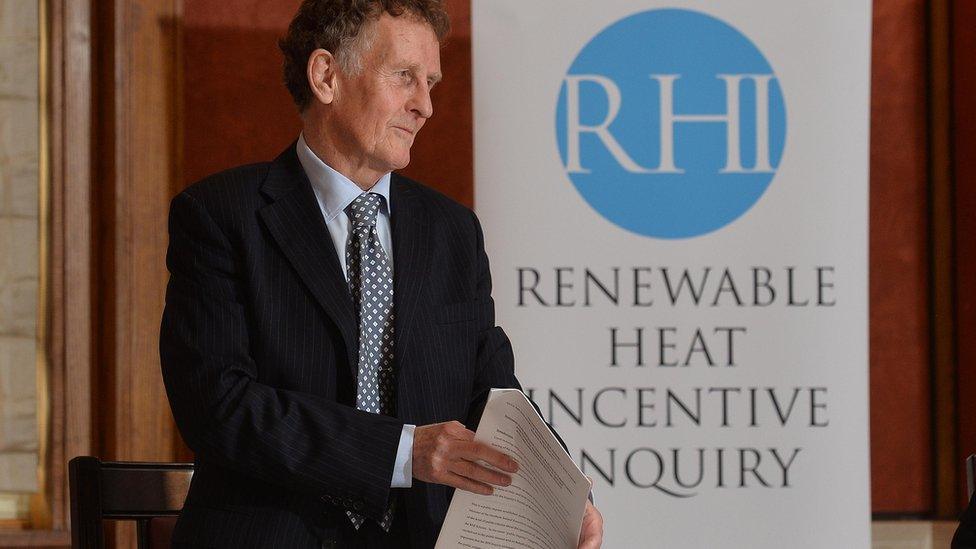
The RHI public inquiry is being chaired by Sir Patrick Coghlin and has heard 98 days of evidence so far
But inquiry counsel Donal Lunny said another of the objectives was to promote energy efficiency.
Mr Doran said the department had promised annual reviews and audits, both of which should have led to the introduction of a tiered tariff.
That would have ensured that applicants were not overcompensated with a high tariff for 20 years.
Sir Patrick asked at what point Action Renewables raised issues about the uncapped nature of the scheme once it got under way.
Mr Doran said the organisation had never done that.
'Contagion'
"Well, then I fail to understand what happened with the balance," Sir Patrick said.
Mr Doran said he could not remember why he decided not to raise the scheme flaws with the enterprise committee at Stormont in 2013.
"I accept that we might not now be in the situation that we are if we had recommended that (tiering)," he said.
He said he now "abhors" the situation in the renewable heat industry, following the fallout of the RHI scheme.
"It's not just bad for renewable heat, but now there's no support for the renewable sector; there's a contagion in the industry," he added.
"If the inquiry finds any criticism of the industry, I'll put my hand up."
Mr Lunny said a key question the inquiry was trying to establish with Mr Doran was whether his organisation became a "facilitator of energy inefficiency" in relation to the RHI scheme.
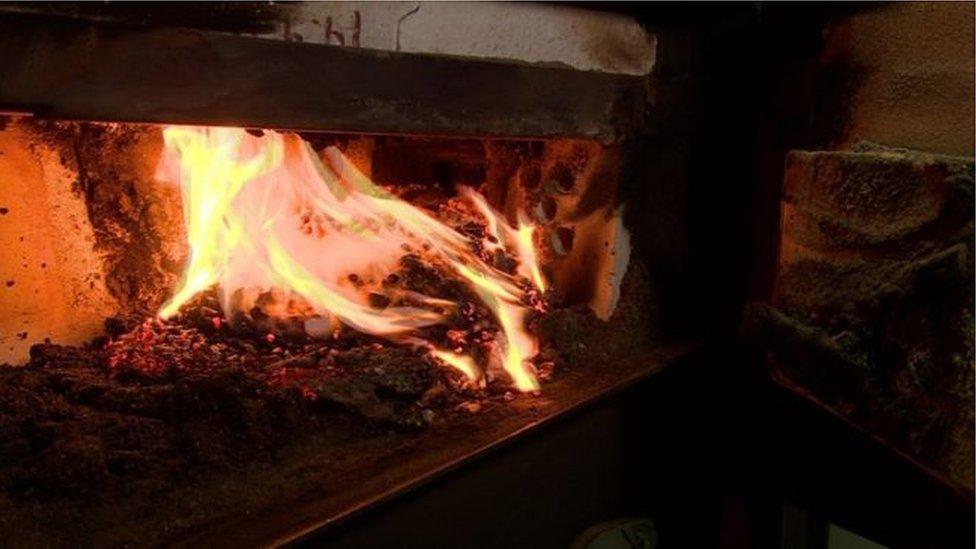
The RHI scheme was established to encourage uptake of eco-friendly heat systems over the use of fossil fuels, but there were loopholes in its design
On Wednesday afternoon, Mr Doran admitted he may have misled an investigation by the Charity Commission, external.
It began an investigation following a complaint by the Alliance Party's Assembly member Stewart Dickson.
He had contacted the commission after an Irish News report pointed out that Action Renewables had facilitated applications to the RHI scheme.
It suggested this had been done despite the organisation being aware of flaws in the scheme.
The Charity Commission closed the file after it met the Action Renewables board to discuss its concerns.
It said it had been satisfied that the organisation had not learned of problems in the scheme until December 2016 - but that contradicted Mr Doran's evidence on Wednesday, in which he said he had known from the outset about the absence of cost controls.
'Cover-up?'
Mr Doran said he had not told the Charity Commission about consultancy reports they had completed on RHI installations.
These showed the overgenerous rate of return and the amount of money to be earned from subsidies.
Mr Doran was asked why he had not shared the reports with the commission; he said he had forgotten he had done them.
Sir Patrick Coghlin said: "It seems to me... that the inescapable inference is that you were misleading the Charity Commission."
Mr Doran accepted that it seemed that way, but denied accusations of a "cover-up".
'Awfully incompetent'
Sir Patrick said the panel would be left with one of two choices in determining what had happened.
"Either you misled the Charity Commission, or you were so awfully incompetent that you could not remember documents that may have assisted in that investigation," he added.
Allow X content?
This article contains content provided by X. We ask for your permission before anything is loaded, as they may be using cookies and other technologies. You may want to read X’s cookie policy, external and privacy policy, external before accepting. To view this content choose ‘accept and continue’.
Mr Dickson has since told BBC News NI he will be contacting the Charity Commission again to follow up on the matter, in light of Wednesday's evidence at the inquiry.
Mr Doran also told the inquiry that Action Renewables had earned £400,000 for handling accreditations over four years.
He said it amounted to less than 10% of its revenue.
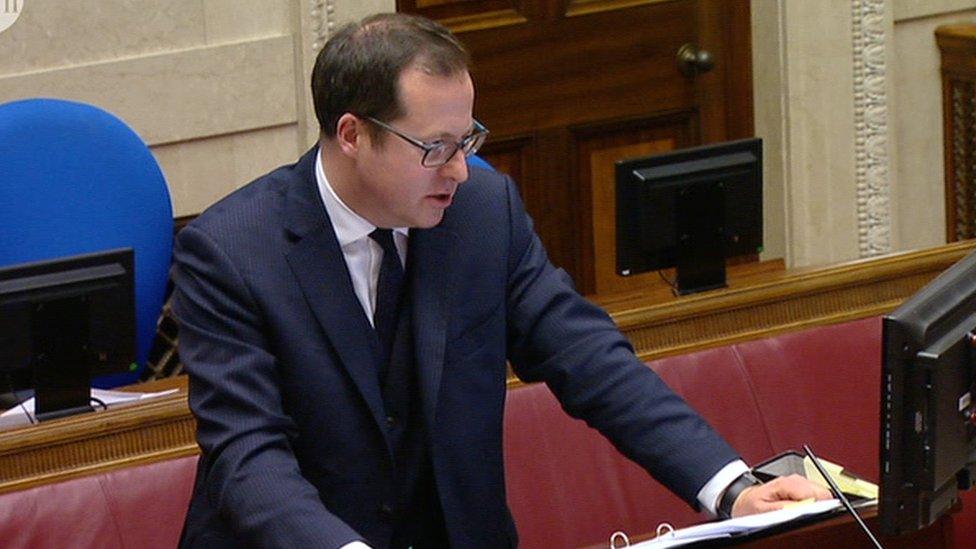
Mr Doran was facing questions from RHI inquiry counsel, barrister Donal Lunny (pictured)
Mr Lunny suggested that this commercial link may have influenced its decision not to alert the enterprise department to the scheme's flaws.
He said they may not have wanted to "kill the goose that laid the golden egg".
Mr Doran denied that and said the organisation had actually been running the accreditation process at a loss.
'Lack of diligence'
The inquiry was also told Mr Doran had failed to provide the inquiry with a large number of potentially relevant documents until earlier this week.
That is a serious issue given the inquiry is judge-led, with powers to compel witnesses and documents.
On Monday, the inquiry finally received 2,659 pages of additional documents from Action Renewables, including up to 50 key technical reports it had asked for.
Mr Doran said the delay had been an oversight on the part of his organisation.
Inquiry panellist Dame Una O'Brien said it appeared to her that Action Renewables was deliberately trying to "frustrate" the panel's work.
Mr Doran apologised, and acknowledged there was a lack of diligence when his organisation was preparing the witness statement.
The inquiry also heard that Action Renewables was asked by Stormont's enterprise department to become involved in carrying out inspections of RHI boilers.
'Fine line'
Asked if he saw any conflict of interest in doing that work, given Action Renewables had been involved in about a quarter of all RHI applications, Mr Doran said: "Yes we did, we thought it wouldn't be appropriate for us to carry out that work."
Action Renewables did not carry out any inspections on behalf of the enterprise department, he added.
Later, Mr Doran accepted that advice he gave to people considering putting in RHI boilers could be described as manipulating or exploiting the scheme.
As Action Renewables' managing director, Mr Doran gave presentations about RHI in 2011, before it officially opened in November 2012.
They included projected incomes from the initiative and pointed out that much bigger returns could be collected, if people installed smaller 99kW boilers that were eligible for the scheme's most lucrative subsidy.
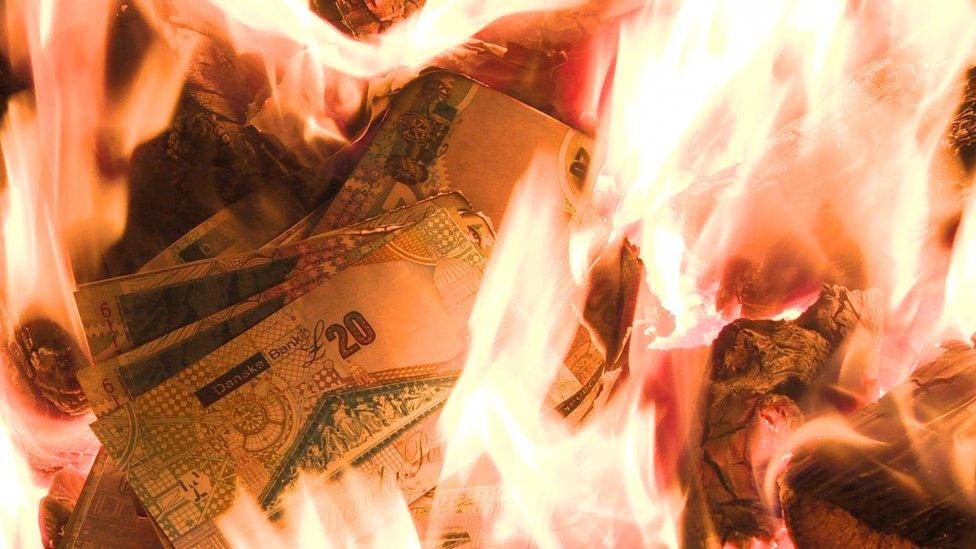
Hundreds of millions of pounds of public money could be wasted as a result of the RHI scheme
Asked if he thought that was an appropriate thing for Action Renewables - as a charity - to do, Mr Doran replied: "Yes."
He said the organisation was trying to encourage people to switch from using fossil fuels to renewable energy, and by pointing out the better returns it increased the chance that people would "take it up".
Sir Patrick said it seemed Action Renewables had walked a "very, very fine line".
Mr Doran is also a founder and former head of the Renewable Heat Association NI - a group representing RHI scheme claimants that lost a legal challenge against Stormont's economy department for its decision to make big cuts to the subsidies on offer.
On Thursday, the inquiry will hear from the former chair of Stormont's enterprise committee, the SDLP assembly member Patsy McGlone.
The DUP's chief executive and Arlene Foster's former adviser, Timothy Johnston, is also due to return to finish his evidence on Thursday afternoon.
- Published2 October 2018

- Published25 September 2018
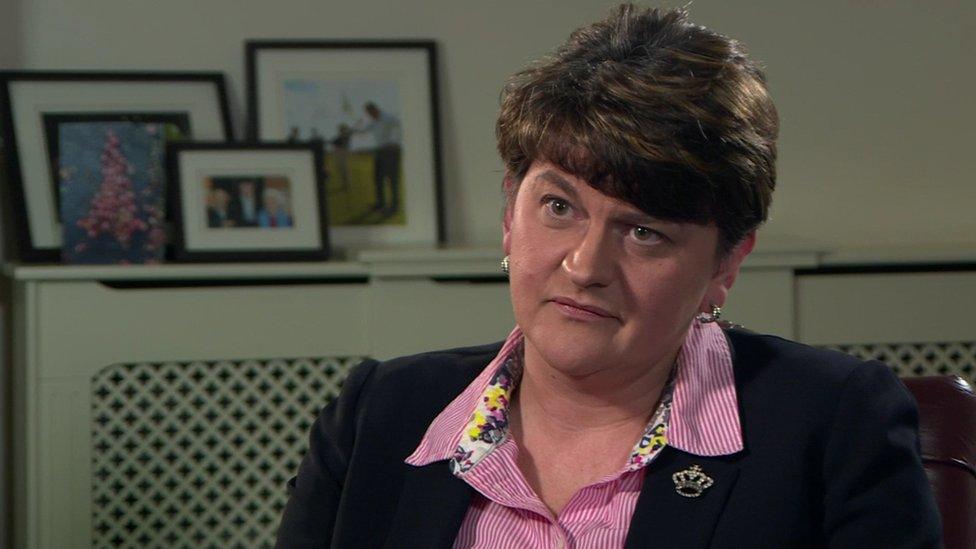
- Published21 September 2018
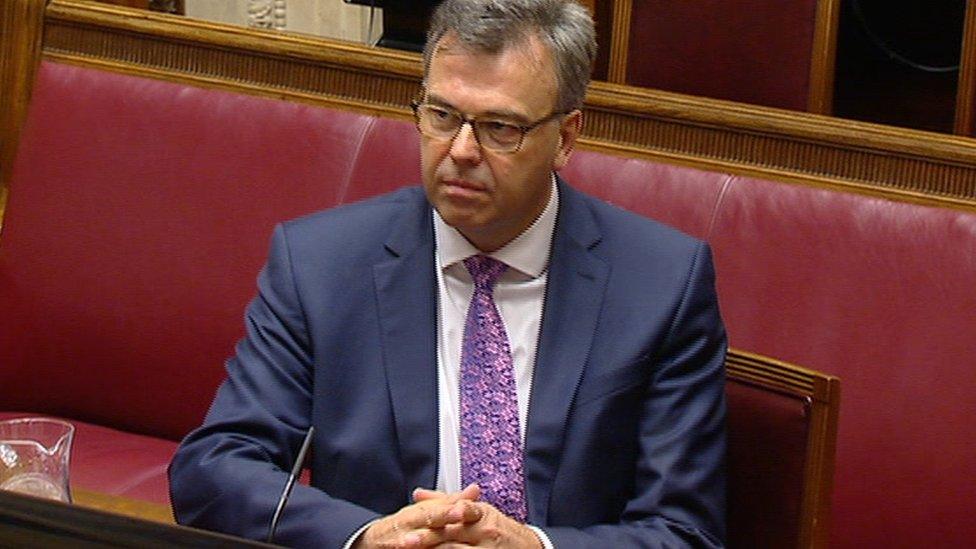
- Published20 September 2018
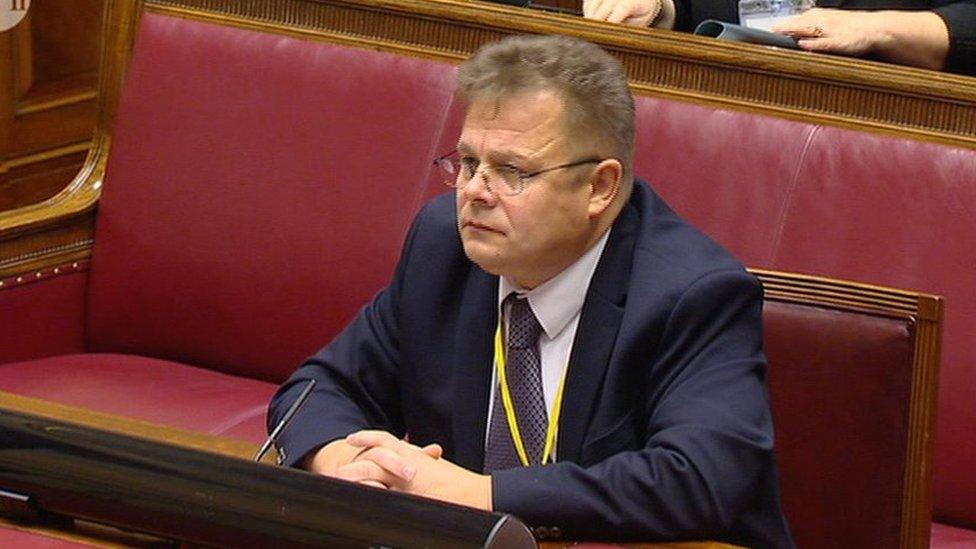
- Published14 September 2018
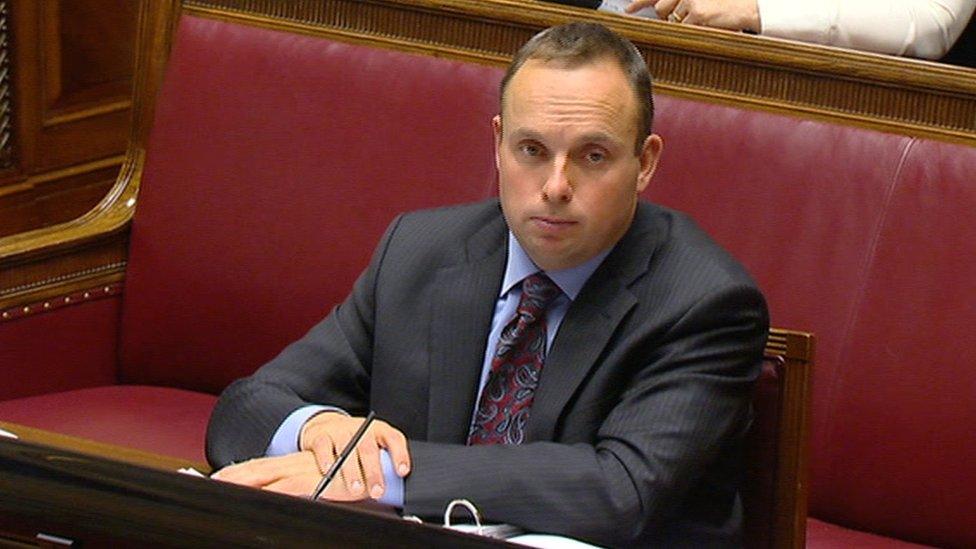
- Published13 September 2018
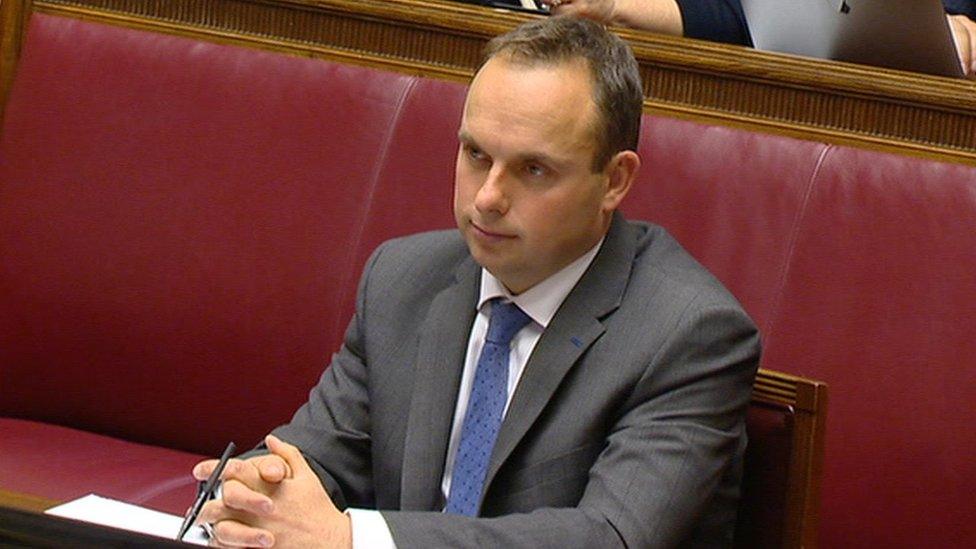
- Published12 September 2018
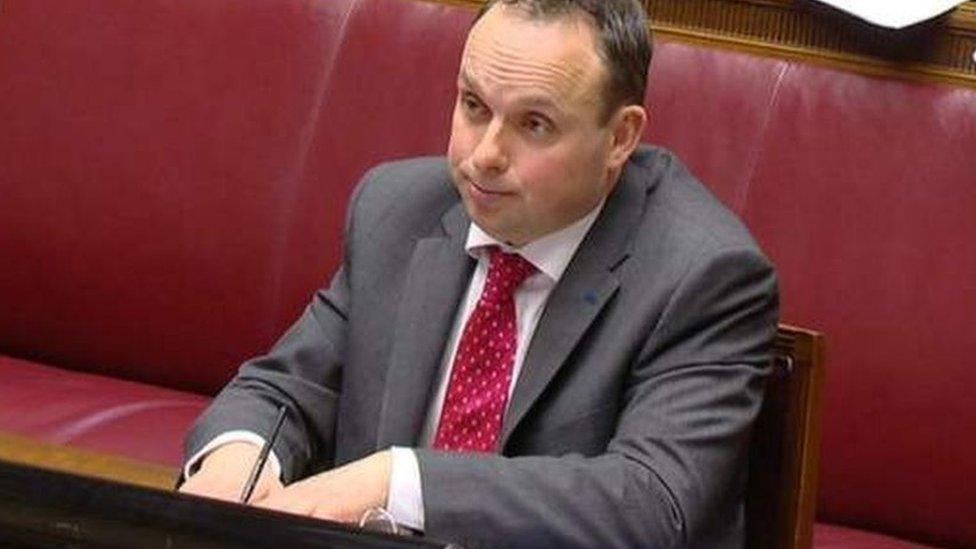
- Published11 April 2018
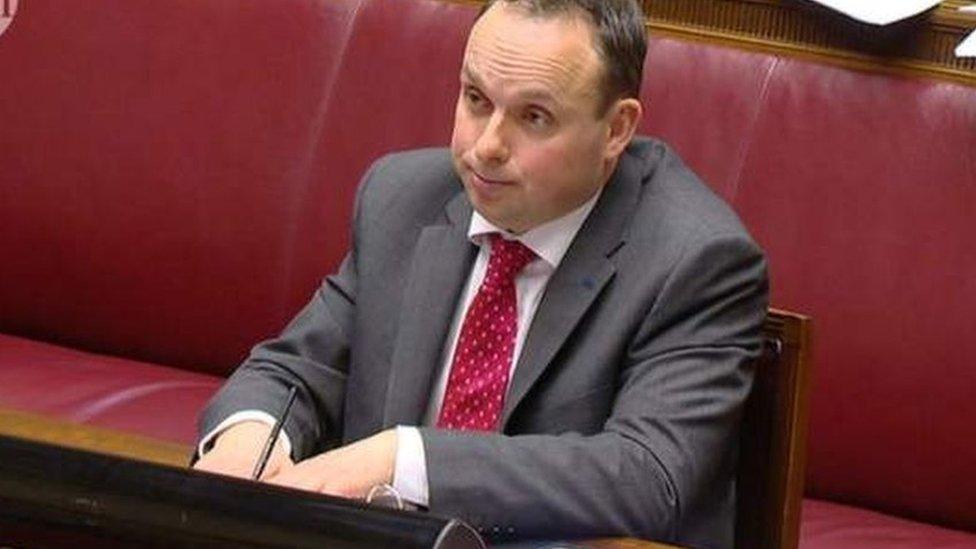
- Published11 September 2018
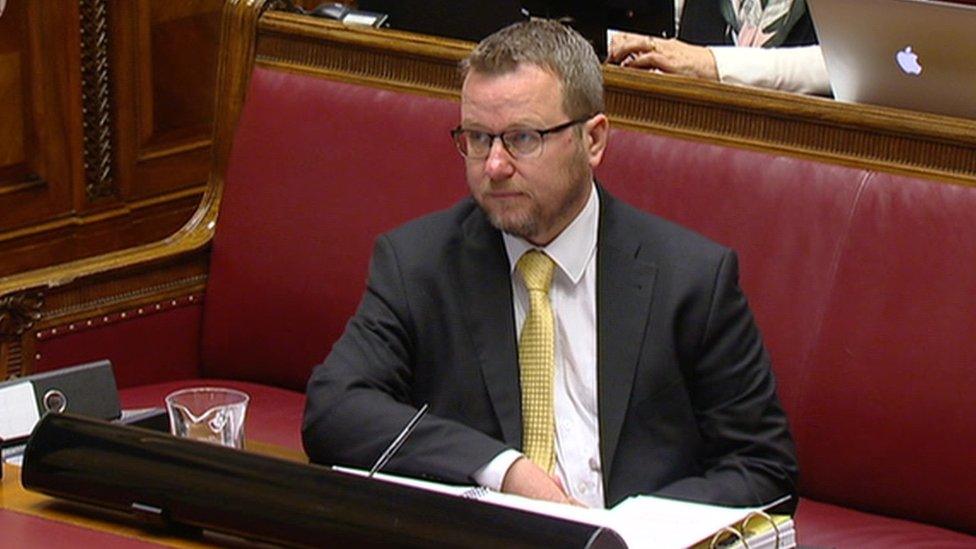
- Published11 September 2018
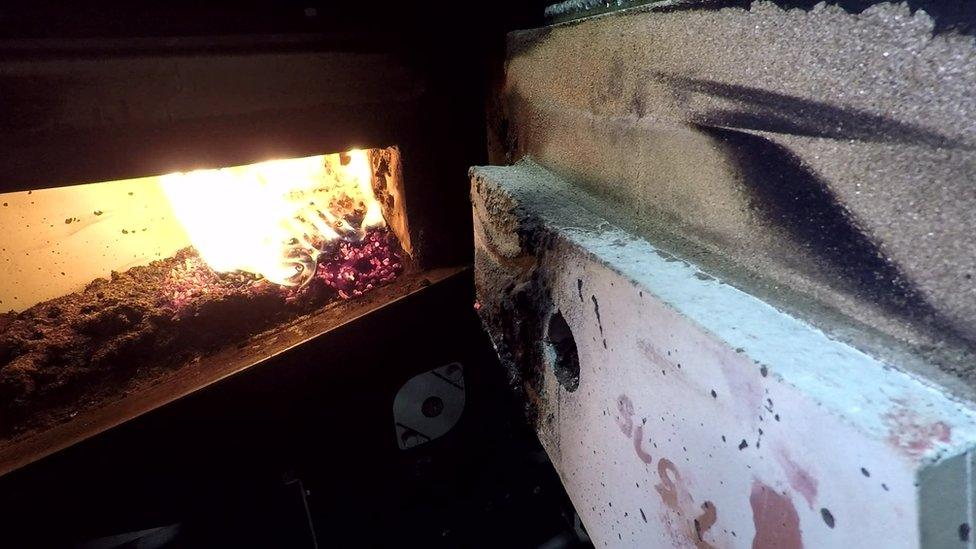
- Published7 September 2018
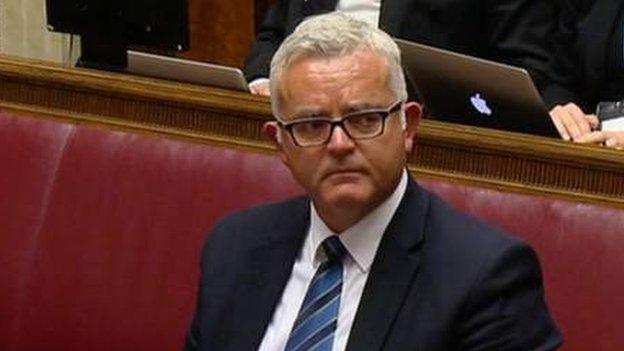
- Published7 September 2018
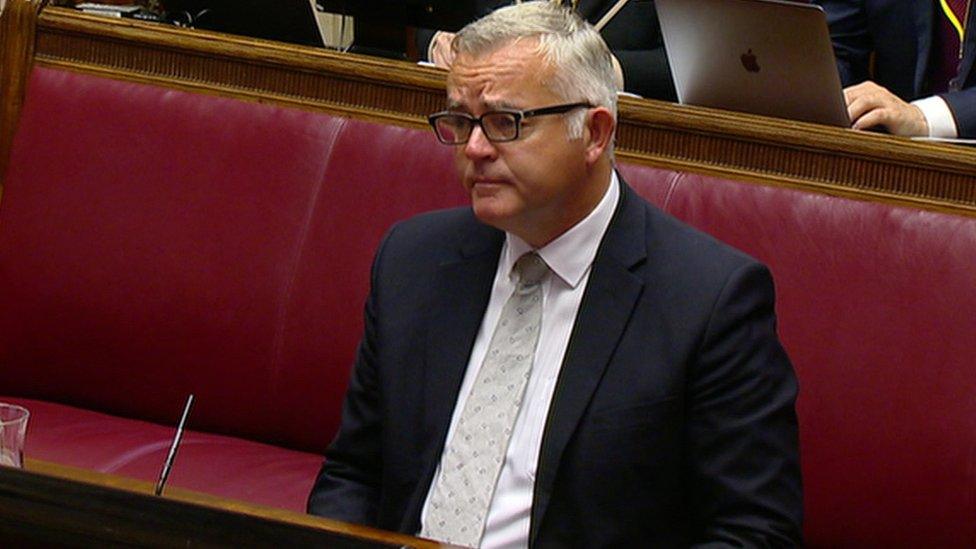
- Published5 September 2018
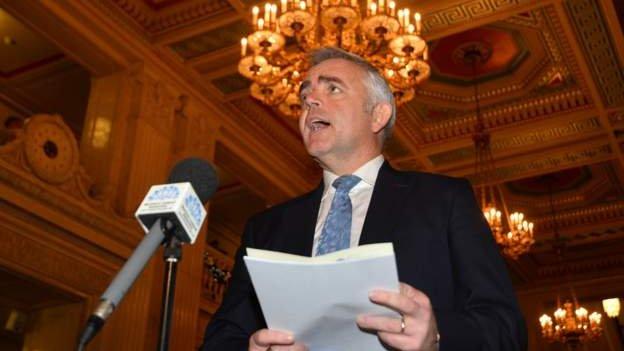
- Published5 September 2018
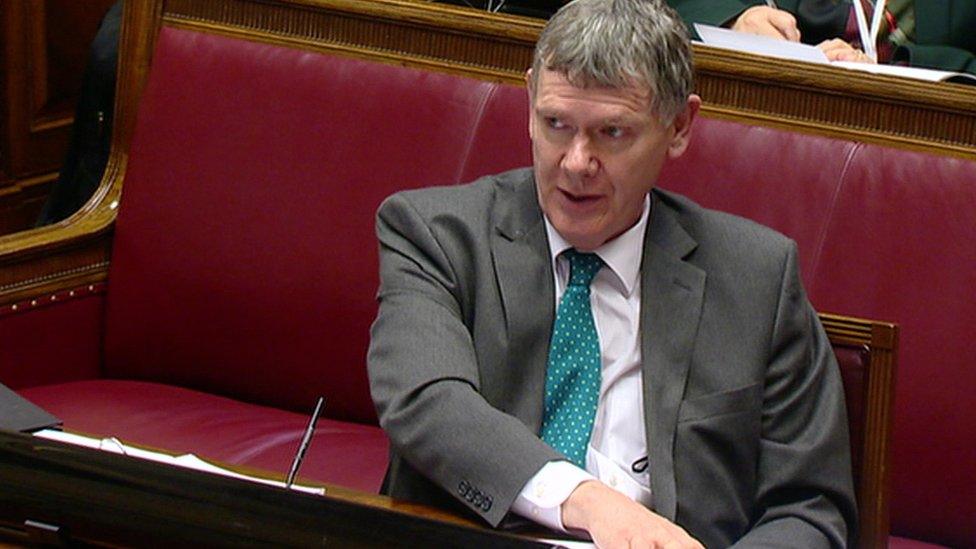
- Published5 September 2018
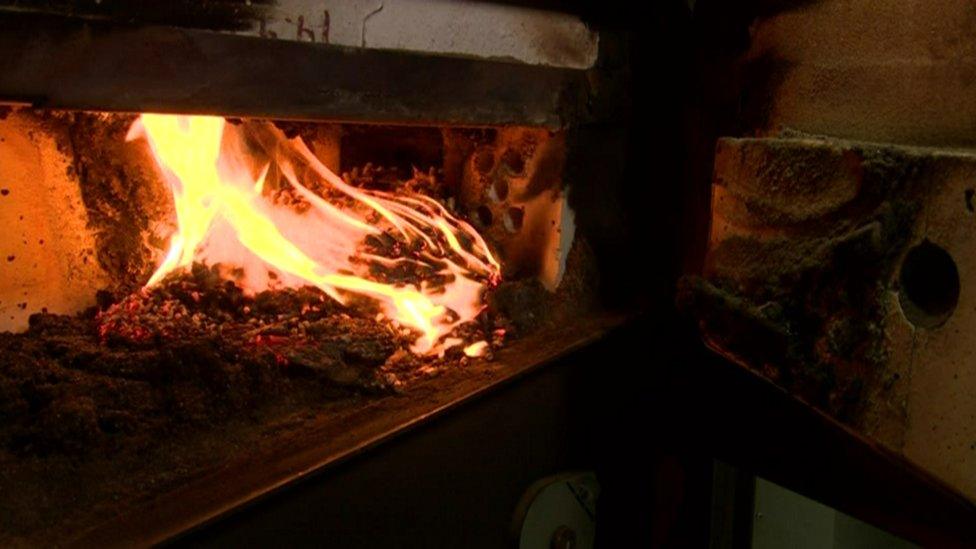
- Published13 March 2020
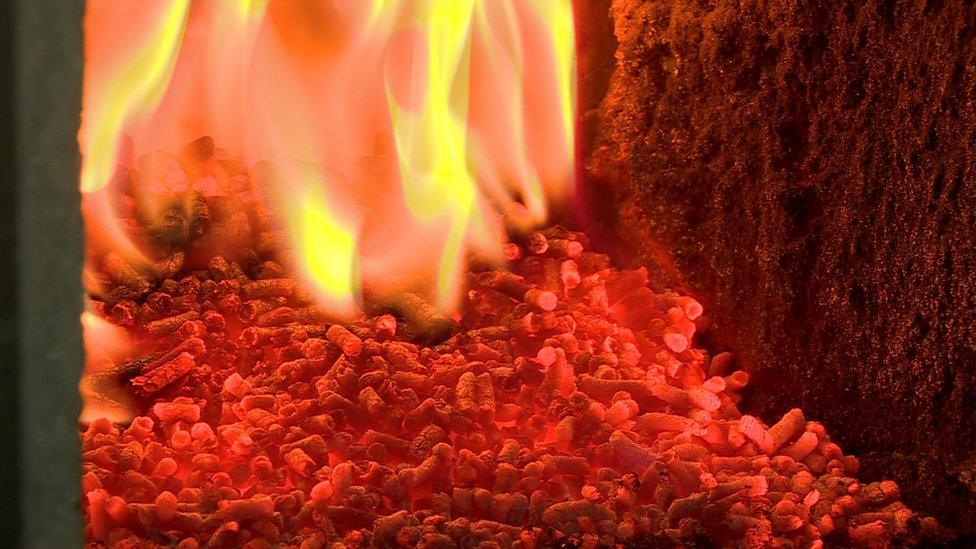
- Published4 September 2018
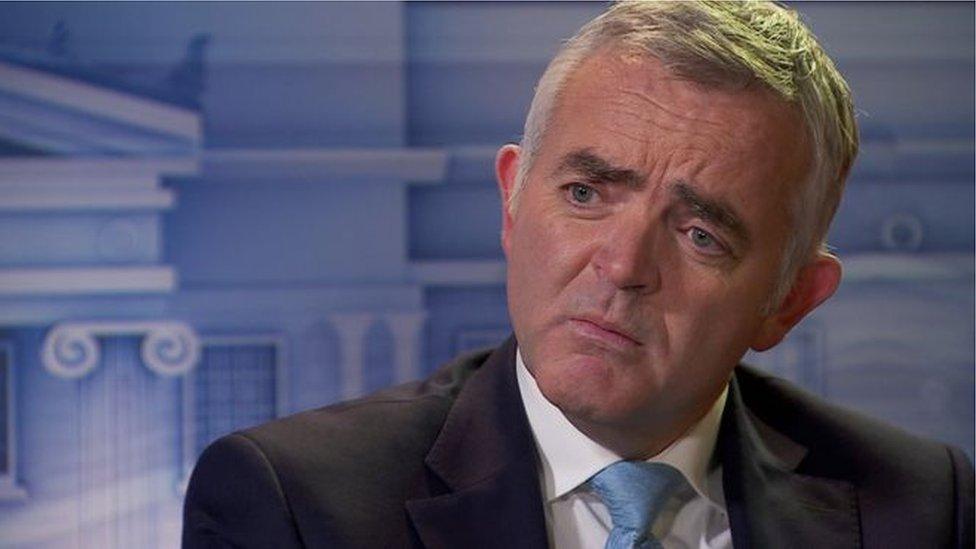
- Published17 April 2018
